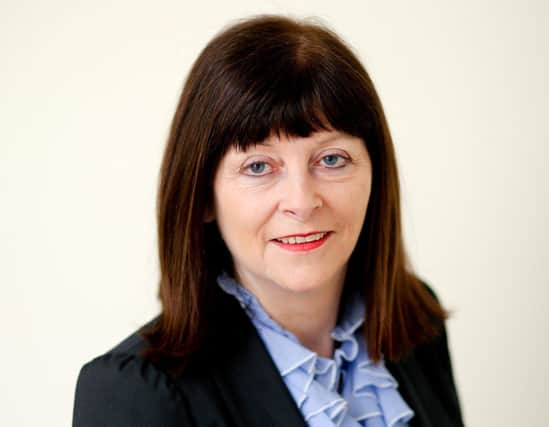‘Not the time to change care home charges’ say charities


Continuing Healthcare involves a care package for an individual assessed as having primarily health needs.
The full costs, including social care, are funded by the health service.
Advertisement
Hide AdAdvertisement
Hide AdA single eligibility question should replace the system for deciding whether the NHS pays, the Department of Health has said.
If the assessment finds someone primarily needs health care rather than social care then the health trust is responsible for funding that regardless of setting.
If the primary need is identified as social care then trusts are entitled to recover the costs of that care.
The Marie Curie terminal illness charity said: “This would have a significant, negative impact on current and future patients in Northern Ireland with continuing healthcare needs.
Advertisement
Hide AdAdvertisement
Hide Ad“It is well-documented that the local age profile is increasing, with more people living with one or more terminal illness and complex needs.
“These people are likely to have a primary need for healthcare, making them eligible for Continuing Healthcare.”
Consultation responses published by the department last week said a single eligibility criteria question would ensure equality, consistency and a standardised approach across Northern Ireland.
Marie Curie said the question would in effect mean abolishing the current policy.
Advertisement
Hide AdAdvertisement
Hide AdBetween 2005 and 2015, the number of over-85s, the population most likely to have advanced or terminal illness, increased by over 35%.
During this period, the number of local patients on registries for coronary heart disease, hypertension, COPD, cancer and dementia, some of the more common complex conditions that can be terminal, increased by nearly 25%, Marie Curie added.
Since 1985, the number of deaths caused by cancer has increased by 35%.
By mid-2032, the over-85 population will have doubled its 2015 level, the charity said.
Advertisement
Hide AdAdvertisement
Hide AdBy 2036-2037, the number of deaths is projected to rise by 20%, the biggest increase in the UK.
Marie Curie added: “With such a rapidly ageing population, and so many people living with complex and terminal illnesses, now would be the absolute worst time to get rid of Continuing Healthcare support in Northern Ireland.
“Withdrawing this support wouldn’t just result in worse outcomes for patients, but would likely put an even greater care burden on carers and loved ones, who already make a multi-billion pound contribution to the health service – often at the expense of their own health and wellbeing.”
Age NI produced a report in 2014 on Continuing Healthcare following concerns raised by families who were frustrated at the lack of clear, accurate information and what they perceived as unequal access to NHS services.
Advertisement
Hide AdAdvertisement
Hide AdIn response to this week’s decision, Dr Paschal McKeown, charity director at Age NI said: “Age NI is disappointed with the Health Minister’s decision to take forward the department’s proposal to introduce a single eligibility criteria in relation to Continuing Healthcare.
“While this option may be clearly understood and be more easily and consistently applied by health and social care trusts, Age NI fears that it will, in effect, bring an end to entitlement to Continuing Healthcare in Northern Ireland, as the proposal means that once a person has been discharged from hospital, the usual charging policy would apply.”
Comment Guidelines
National World encourages reader discussion on our stories. User feedback, insights and back-and-forth exchanges add a rich layer of context to reporting. Please review our Community Guidelines before commenting.